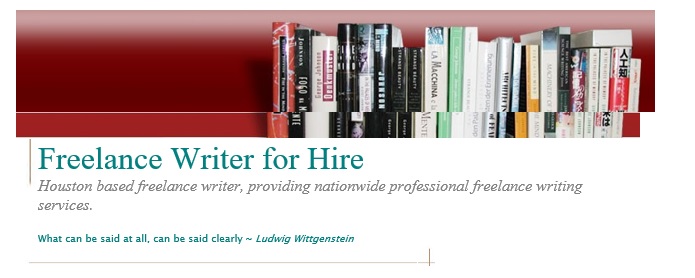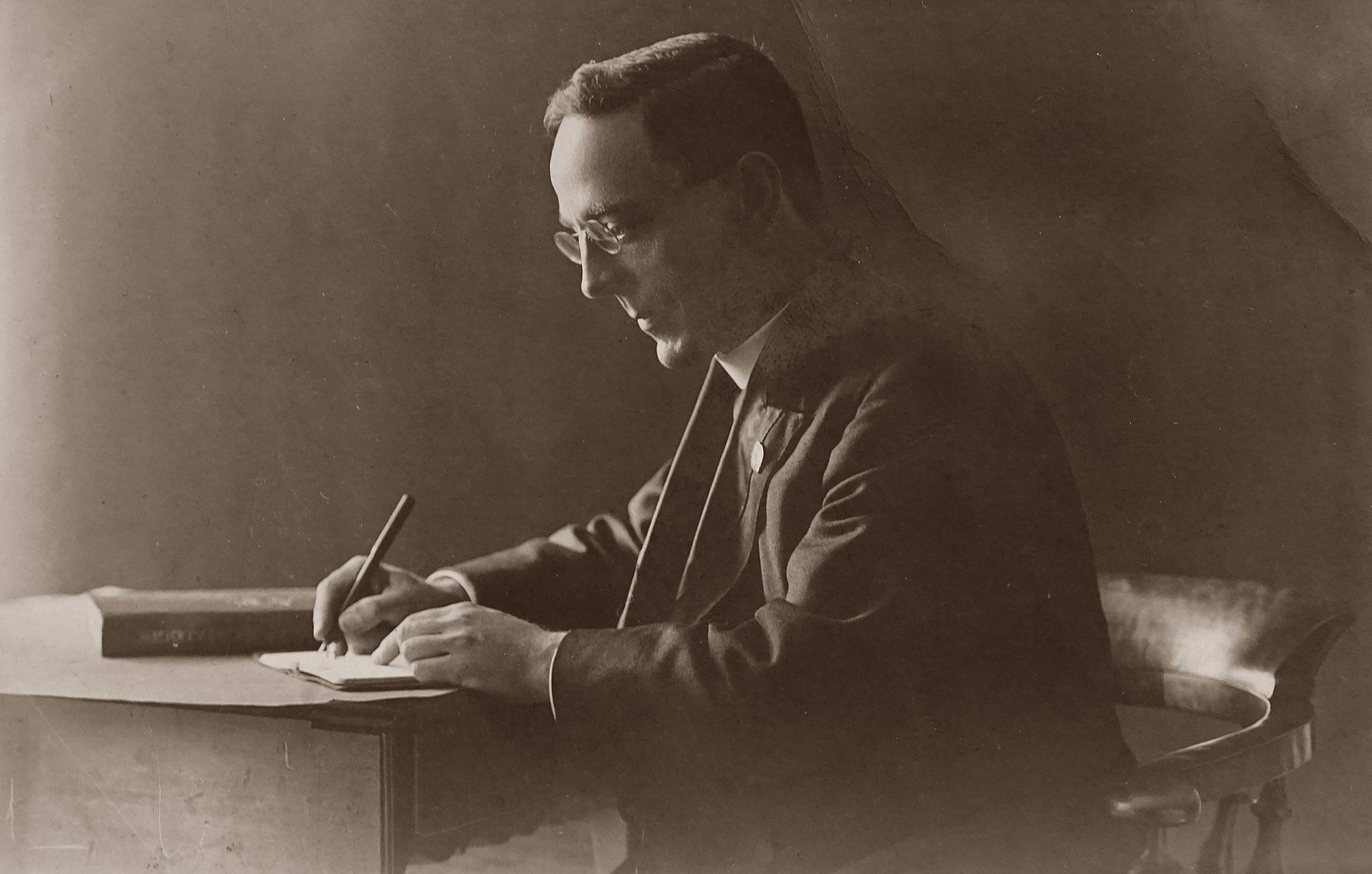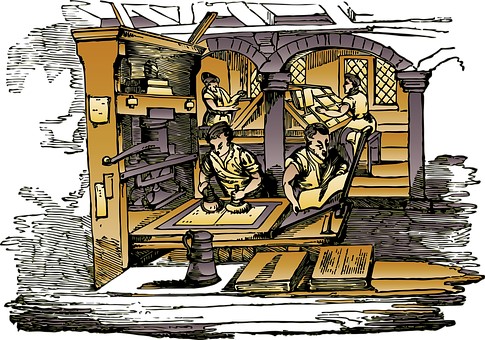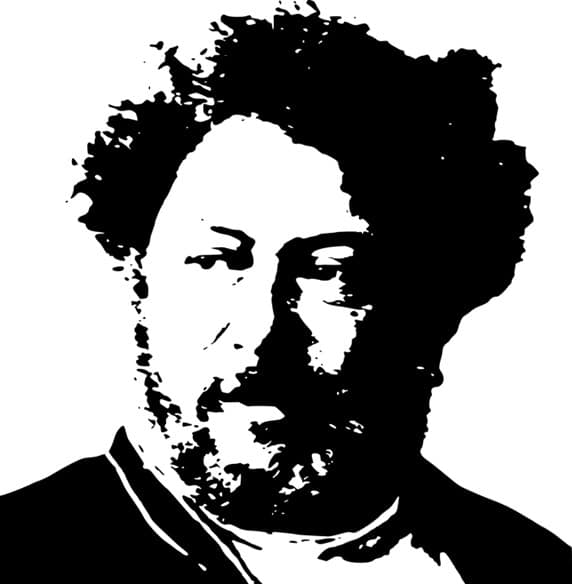Good writing, regardless of the author’s name, will always be good writing. Nevertheless, there may be a time when an author may choose to forego their true name and adopt a pen name.
There are various reasons why authors would choose to take on a different name to publish their works. This article will focus on why authors choose to adopt a pen name. Further, it will discuss how authors can pick the right pen name for a nonfiction book.
What is a pen name?
Pen name, pseudonym, alias, or nom de plume are terms that refer to an author using a different name than their own to publish their works.
More often than not, writers adopt a pen name because they do not want their real name to appear on their published materials.
This practice is highly common in creative writing. Fiction writers often conceive a pen name to match the subject of their works. For instance, a writer may adopt a comical pen name to match a work of comedy.
In the nonfiction domain, writers may also adopt pen names for various reasons.

Please note that there are no legal restrictions whatsoever for authors to publish under pseudonyms. In fact, it is a common practice in the literary world.
However, there is one caveat: Choosing an alias must not conflict with an existing one. Otherwise, there may be copyright issues involved.
So, the question begs, why choose a pen name? The answer to that question has various facets to it.
Why use a pen name when writing a nonfiction book?
There is a myriad of reasons why authors would choose a pen name to publish a nonfiction book. As such, it is worth taking a look at them in detail.
Fear of Reprisal
Unfortunately, there are occasions when authors tackle controversial topics. Consequently, they fear reprisal of some sort.
Choosing a pseudonym allows these authors to publish their works while protecting themselves and their loved ones. This situation is common when authors seek to raise awareness or even denounce wrongdoing.
Distinguish Between Personal and Professional Lives
Some authors are established professionals in a given domain. As a result, writing may be a side project for them. In this regard, keeping personal and professional lives separate makes sense, particularly when looking to avoid confusion or criticism.
For instance, a respected physician has a passion for gardening. Publishing books on gardening, therefore, might seem confusing given their professional reputation.
Publishing under a pseudonym may become a great way to pursue their life’s passion without affecting professional practice.
Similar Names
There might be occasions when an author has a similar name to another writer.
In this situation, a newer author may need to change their name. In doing so, they can avoid unnecessary confusion or possible legal action.
Unavailability of Websites or Social Media Handles
There are cases in which an author’s preferred website names or social media handles are already in use. Therefore, the author cannot utilize these.
Using derivations of existing social media handles and website domains may confuse readers or appear to copy existing authors. As a result, choosing a nickname or pen name may be the best solution around the situation.
Marketing and Branding
Marketing and branding may call for the adoption of a pen name. For instance, a pen name that rhymes with a book series title or fits better with a specific genre.
For example, a children’s book called “Silly Fish” could be better marketed with an author named “Jimmy Kish” than a more formal name, such as “James Kishmore.”
Gender Changes
On some occasions, authors may prefer to assume a gender change. For example, male authors may prefer to adopt a female persona and vice-versa.
Other times, gender changes may be more appropriate given a book’s topic.
Nevertheless, pseudonyms based on gender changes generally respond to marketing and branding purposes.
Individual Authors Delving into Multiple Genres
Truly talented and prolific writers may delve into multiple genres at the same time. By adopting pen names, an author can separate the genres of their publications, thus avoiding confusion among readers.
This approach is also highly important for marketing purposes.
Authors Want to Adopt a Different Persona
For some authors, utilizing a pen name allows them to unleash their alter ego. As such, authors can explore different facets of their personalities.
This exercise can lead to creating entirely new personas that manifest themselves through their writing. While this is very common among fiction writers, nonfiction writers often use writing as a means of self-expression.
Ultimately, using a pseudonym can be liberating.
There are times when an author may not feel entirely comfortable expressing ideas or exploring topics in their own voice. It is, therefore, worth exploring the use of pen names as a psychological device to facilitate writing.

Overall, adopting a pen name allows authors to sidestep obstacles that may be keeping them from publishing their works.
Using a pseudonym can make the difference between an unfinished writing project and a successfully published one.
How to Choose the Right Pen Name?
When it comes to choosing the right pen name, there are various elements to consider. In particular, these elements must make sense with the materials themselves, the author’s persona, and the target audience. When pen names match these criteria, publications get the boost they need to succeed.
Here are six helpful elements to consider when choosing a pen name.
1. Getting Age Right
One of the biggest challenges in selecting a pen name lies in getting the author’s perceived age and lived experience right.
Choosing the right age depends on a number of factors, such as the book’s genre, target audience, and branding. Consequently, it is important to have a full picture of the book’s author to choose the right name.
Consider the following:
- A financial planning guide might require a name perceived to be a more mature person. For instance, a name such as Mikey Steve would not resonate as well as a name like George Evans.
- A vegan cookbook might be better off with someone younger. For example, Samantha Carter might sound better than Mildred Smith.
In these examples, getting the author’s age right helps the material click with readers.
While it is not always necessary to pinpoint a pseudonym’s exact birthdate, it helps to have a ballpark figure.
For example, assuming that the author is 35 years old helps gauge what type of name they might truly have. A helpful tip is to consult a given year’s most popular baby names.
For instance, if the author is roughly 35, they might have been born in the late 1980s. Checking the most popular baby names in 1987 or 1988 might provide some very useful suggestions.
2. Fitting Names With Genres
Names and genres must click in readers’ minds. When there is a disconnect, the material may seem off somehow. Consequently, selecting a name that makes sense with the material’s overall genre is crucial.
Consider this possibility:
- A spiritual awakening book is published under the name of Tom Sky.
- A computer programming course is published by Jennifer Smart.
In these examples, the pseudonyms relate to the books’ genres.
While the names may not be something one might find on a birth certificate, they sound congruent with the topics. Moreover, these names do not sound bizarre or invented.
The names also help paint a picture in readers’ minds about the authors’ personalities. After all, “Tom Sky” sounds quite spiritual.
3. Double-checking Current Published Authors, Websites, and Social Media Handles
It is crucial to ensure that a pseudonym does not clash with any existing authors’ names (real or pen name), social media handles, or websites. As such, doing a cursory check on search engines such as Google can reveal if there are similar names already in use.
Please remember that similar names or derivations may become a copyright challenge. Therefore, it is best to ensure that names clearly differ.
- For example, John Dark might lead to a challenge from Jon Dark.
- Also, Alice Winter may be confused with Alice Winters.
Once you’ve chosen a suitable pen name, it is a good rule of thumb to claim domain names, register copyrights, and secure social media handles. These tasks are important as someone else may register a claim. Therefore, it is better to do it sooner rather than later.
4. Making Names Easy to Say and Remember
While it might be fun to use funny or clever names, complex, weird, or hard-to-pronounce names may do authors a disservice in the end.
Names like Octavius Cleverhorn may sound nice (and it does), but it is not the kind of name that rolls off the tongue. Instead, a name such as Michelle Thomas is something easy to remember.
Please bear in mind that pen names ought to facilitate searches on Google or Amazon. Therefore, using relatively common, easy-to-remember names can go a long way.
5. Using Nicknames
Nicknames can work well, depending on the genre, target audience, and author’s age.
Using nicknames can provide an interesting and even playful alternative, particularly with genres geared toward a younger audience.
For instance, a nickname like “Scooter” may work well for a video game guide.
Also, nicknames can add punch to some topics. For example, “Boomer” might work very well as an exercise guide for bodybuilders.

There is one caveat to consider: It is always important to ensure that nicknames do not lend themselves to any impropriety.
In addition, nicknames ought to avoid any gender or racial stereotypes.
Ensuring that nicknames are tasteful and relevant can enhance a book’s connection to its target audience.
6. Bonus: Choosing a Profile Photo
What happens when authors need a profile photo to go with their pen name? The obvious choice might be to select a stock photo.
While stock photos may work very well, they might seem generic or outright fake. As a result, stock photos may not serve the purpose authors seek.
A great alternative is to use a tool such as AI-generate photos. These photos use real people and alter their features to produce unique headshots.
Users can tweak these photos to resemble a particular ethnicity, age group, or facial features.
For instance, Generated Photos offers a unique alternative. This basic tool is free to use. There are also paid subscriptions available.
Ultimately, choosing a profile photo is an important element in creating a truly unique persona. So, combining a great pseudonym with a custom photo makes a great combination.
One Final Thought
There are occasions when a pseudonym can help authors bring in a ghostwriter to help them with their writing projects. A pen name provides great cover whenever a ghostwriter’s services are employed.
Hiring a ghostwriter has nothing to do with deceiving readers. In fact, a ghostwriter is a great way prolific writers can get more of their work out to the public.
When authors employ a ghostwriter, it makes sense to use pen names, particularly if the content covers different topics, genres, and subjects. In doing so, authors can avoid confusing readers regarding their main focus.
For example, an author mainly focused on business topics can adopt a pen name to produce self-help guides. Using a pen name allows the author to employ a ghostwriter to help with some or all of the writing work.
In the end, using a ghostwriter’s services can help authors expand their horizons, reach more readers, and establish themselves in multiple fields.
Indeed, utilizing pseudonyms can become a highly useful strategy. Nevertheless, authors must take the time to carefully choose a pen name based on the criteria discussed in this article.



















































